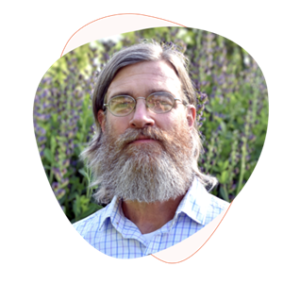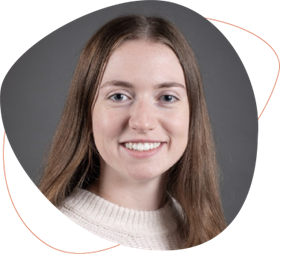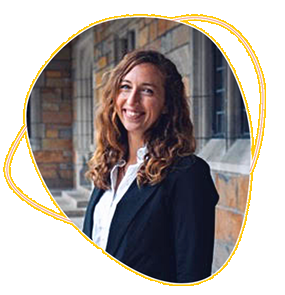Context
Each year, the reDirect Foundation partners with the City of Ann Arbor’s Office of Sustainability and Innovations (OSI) to offer fellowship opportunities for University of Michigan students.
With guidance from City staff, fellows use the Supportive Environments for Effectiveness (SEE) framework to develop strategies that support the City’s sustainability and climate action goals under its A2Zero Climate Action Plan. Under this collaboration, projects have addressed a variety of topics ranging from the implementation of solar programs to enhancing neighborhood and regional resilience.
ARTICLES ABOUT THE FELLOWS
ARTICLES BY THE FELLOWS
A2ZERO DELIVERABLES
Beshouri, I. and M. Cooney (2022) A2Zero Ambassador Program Report.
Fink, R. (2023) Nourishing Neighborhood Networks: Short Guide.
Krick, J. (2024) A2Zero Home Energy Effectiveness Toolkit.
Ramsey, S. (2024) A2Zero Solarize Toolkit: Guide for Hosts.
Ramsey, S. (2024) A2Zero Solarize Toolkit: Guide for Installers.
Ramsey, S. (2024) A2Zero Solarize Toolkit: Guide for Organizers.
Ramsey, S. (2024) A2Zero Solarize Toolkit: Guide for Participants.
Woodward, T-S. & R. Fink (2023) Nourishing Neighborhood Networks: Best Practice Guide.
Woodward, T-S. (2022) A2Zero Solarize Toolkit (Updated 2024).
Woodward. T-S. (2022) A2Zero Solarize Program Guide.
REGIONAL RESILIENCE DELIVERABLES
Woodward, T-S. (2024) Regional Resilience Networks: Best Practices. [City of Ann Arbor OSI]
FELLOWS
Summer 2024:
 |
Jason Krick returned to graduate school after a 25-year financial planning career pursuing a Master of Science degree at the University of Michigan School for Environment and Sustainability, specializing in behavior, education, and communication as well as ecosystem science and management. Jason earned his Bachelor of Science degree in secondary education from Northwestern University. His research interests include the psychological benefits of frugality and voluntary simplicity, degrowth, and behavioral and ecological restoration. He helped implement the SEE framework in Ann Arbor’s home energy advisor and energy rebate programs. |
 |
Sarah Ramsey is pursuing a Master of Science in Environment and Sustainability with a specialization in behavior, education, and communication at the University of Michigan. Before joining SEAS, Sarah received a Bachelor of Science in environmental studies and a Bachelor of General Studies in psychology from the University of Kansas. She has prior experience collaborating with community members, renewable energy developers, and municipal governments to build local wind energy resilience plans. Sarah’s research interests include understanding pro-environmental behavior, person-environment interactions, and the broader field of environmental psychology’s applications to community engagement efforts. |
 |
Tara-Sky Woodward is a returning reDirect fellow and a recent graduate student from the University of Michigan’s School for Environment and Sustainability. She is currently completing her second Master’s degree in the School of Social Work. Tara-Sky also holds Bachelor of Arts degrees in history and psychology, with a research focus in community climate resilience. Her passions include building community resilience and using storytelling to promote learning and inspire meaningful action. She has published a Resilience.org article based on her research exploring the “settlement house” notion as a time-tested model for neighborhood resilience. |
Fall 2023: Rachel Fink
Rachel Fink – an MS graduate from the University of Michigan School for Environment and Sustainability specializing in Behavior, Education, and Communication as well as Environmental Justice. She holds a Bachelors in Psychology with a concentration in Sustainability from Appalachian State University where she conducted research on re-framing environmental behaviors. In the future, she plans to engage in community resilience and equitable environmental solutions at the community level.
Summer 2023: Rachel Fink, Margaret Halpern, and Tara-Sky Woodward
Margaret Halpern – recently received her Master’s degree from the University of Michigan School for Environment and Sustainability. Maggie has dedicated much of her career and volunteering to sustainability and re-localization efforts in the food system. She is currently working to combine her food systems experience and passion for textiles to launch a regional Fibershed affiliate organization, working toward a circular economy for natural fibers in Michigan. She is focused on incorporating principles from environmental psychology, community-based research, and environmental justice into adaptation and resilience initiatives to facilitate just transitions for sustainable communities.
Fall 2022: Tara-Sky Woodward
Summer 2022: Margaret Cooney, Isabella Beshouri, and Tara-Sky Woodward
Isabella Beshouri – a student of Environmental Psychology and Design. She is earning her Master’s in Urban and Regional Planning at the University of Michigan, exploring the question of how to design resilient communities at the intersection of social justice, public health, and ecological harmony. Izzy integrates her appreciation of the connective power of food through her work for the UM Sustainable Food Program, where she and her team work to redistribute power in community food systems and foster solidarity between students fighting for food justice. As a reDirect fellow, she brought this passion for socially, environmentally, and economically nourishing communities to her partnership projects with A2Zero.
Margaret Cooney – a 2024 BA graduate of the Environmental Policy and Management program at the University of Michigan. As a reDirect fellow, Margaret worked under the mentorship of Galen Hardy to apply the SEE framework to aspects of community engagement, analyzing success principles in the city of Ann Arbor’s climate neutrality initiative. Margaret wrote for the Undergraduate Journal of Sustainability, and also helped facilitate community support of mental health and well-being on campus in her leadership position with the Wolverine Support Network.
Raymond De Young
School for Environment and Sustainability
University of Michigan, Ann Arbor, MI 48109
Updated: December 30, 2024

